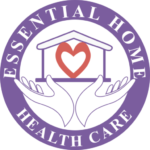Medications are used to treat several medical conditions in the elderly. The correct prescriptions and OTC medications can lessen or eliminate a patient’s symptoms, improving their quality of life. What is the importance of medication management in aged care?

Medication efficacy varies by patient. Doctors must account for patient variances by examining each patient’s medical history and current drug plan.
Medication management is an important aspect of the treatment plan for elderly people who take many medications. Nurses, doctors, home care aides, caregivers, and health professionals manage drugs to ensure patients benefit most.
Medication management is an outpatient therapy technique that evaluates a patient’s medication needs. Prescription medications are examined for side effects. Some patients may be using medications that no longer help them, or they may require a new prescription. Essential Home Health their home health services all over Chicago; contact them any time without hesitation.
After this initial evaluation of the patient’s medications, all prescriptions and over-the-counter medications must be monitored regularly to ensure that two or more medications are not interacting negatively (polypharmacy) and none are causing side effects affecting the patient’s quality of life. Medication management aims to achieve patient goals.
Patients don’t always realize how their drug affects their health. Some individuals have trouble taking their prescription at the optimal time and dose. In addition to taking the right prescription at the right time, health providers must check for unwanted side effects or drug interactions that could hinder the patient’s rehabilitation. Prescription Management encourages doctors to examine a patient’s medication regimen for adverse effects and drug interactions.
Medication Management permits skilled healthcare providers to analyze a patient’s list of medications and their use of vitamins and supplements to determine how these drugs interact to produce either good or bad results.
Some patients don’t follow drug schedules or doses. Instead, the patient may be abusing medicines. Medication Management puts these issues into focus to solve difficulties and provide better patient results through coordinated treatment.
Important of Medication Management
Medication Management is a crucial element of geriatric care since drugs can have good or negative effects on the patient based on several factors that may be too hard for the patient to understand or manage alone.
Medication Management professionals analyze the patient’s condition and whether symptoms eased or emerged since new medications were prescribed. Medication Management prevents major side effects like dementia from drug interactions or side effects.
Some people may have side effects and health complications from their doctors’ medications. Even if a doctor recommends meds that may help a patient recuperate, the patient may not take them properly.
Some elderly hoard drugs and take too-low doses. Others take too much. If the patient has seen multiple doctors with various specialties who don’t communicate, they may prescribe medications that interact poorly and generate unwanted consequences. Medication Management prevents this.
If a patient isn’t getting better or suddenly gets sick, they may need Medication Management. They may need new medicines or dosages. Some patients must adjust their drug schedules.
Sometimes the solution is simple. The patient may need modified prescription dosages or help to take them on time. When healthcare providers regularly examine a patient’s meds and health outcomes, the patient is more likely to attain the desired results.
Medication Management is crucial for senior care. Pharmaceuticals can have unanticipated effects on people. Different drugs may have unanticipated consequences based on patient physiology.
Caregivers and loved ones should expect a negative drug interaction or prescription-based side effects if a patient’s cognitive status, mood, or other symptoms change when a new prescription is added. Medication Management should be done before symptoms appear, not after.
How Do You Manage Drugs
When a patient takes many drugs, their dose plan should be easy to follow. You must use tools and approaches to reduce the risk of giving a patient the wrong medication. Giving a patient the improper medicine dose or schedule might have serious consequences.
Many people struggle to manage their prescriptions. 40% of seniors take 5 or more prescription medicines. That’s risky. These tools can help patients and caregivers prevent dose and scheduling errors:
Follow the doctor’s medication directions
A patient should take a given drug as directed. Some individuals reduce their medicine doses to save money. Some individuals use too much medication for pain or other symptoms. Follow the doctor’s orders. Non-compliant patients risk unfavorable pharmacological consequences.
Use the same drugstore for all medications
Sometimes it’s easier to fill prescriptions at the grocery store pharmacy. Sometimes it’s tempting to fill medications at home. If a patient takes various drugs, fill all prescriptions at the same pharmacy. The pharmacist can view all the patient’s drugs if they’re filled at the same pharmacy. The pharmacist can then identify drug interactions.
Pre-order refills
When prescription medications run out, many patients experience poor health. Get refills early. Check the expiration date on each patient’s medicine and seek refills even if some tablets remain. Ask the pharmacist if the patient may refill many medications at once to reduce pharmacy visits.
Note new symptoms in new-medication patients
If a new medication interacts unfavorably with another, it may take hours, days, or weeks for a patient to develop polypharmacy symptoms. Some people may encounter negative side effects even if the new medication doesn’t interact with another. When a patient develops new symptoms after taking a new medicine, caregivers or loved ones should notify a doctor and request Medication Management to identify if the problem is due to drug interactions or side effects.
Post a prescription reminder on the fridge or cabinet
Elderly patients with prescriptions should take drugs regularly. If a fridge reminder isn’t enough, set a phone timer. Schedule your medications. Take drugs after brushing teeth, for example.
Use a pill box
A pill dispenser features daily compartments. Pill dispensers have morning, noon, and night sections. These dispensers are useful for patients who take many tablets a day. The pharmacist may fill the patient’s pill dispenser. An excellent pill dispenser helps the patient or caregiver see if the patient has taken their pills.
Track the Patient’s Meds
Every patient should have a list of their prescriptions for emergencies or checks. This list should include the drug’s name (generic and brand), dosage, schedule, and reason for use. Always give the patient this list. Never assume the doctor has a list of medications.
Different specialists may prescribe different medications for patients and may not know about each other’s prescriptions. A list of a patient’s medications can be lifesaving in emergencies, and sharing it with prescribing doctors at checkups can help avoid harmful drug interactions. Doctors can rapidly examine this list at every appointment to identify if a patient’s symptoms are due to drug interactions or adverse effects.
Check Medication Management Annually
If you haven’t had an annual evaluation of the patient’s prescriptions, put them in a bag (including over-the-counter drugs) and take them to a doctor or pharmacist. As people age, their physiology changes, and their bodies may react differently to medications they’ve always accepted well, so a medication review should be planned regularly.
Essential Home Health is expert in medication management for aged people. You can learn more about tips for effective medication management in the community for seniors. For more information, call them at 847-813-6301.
